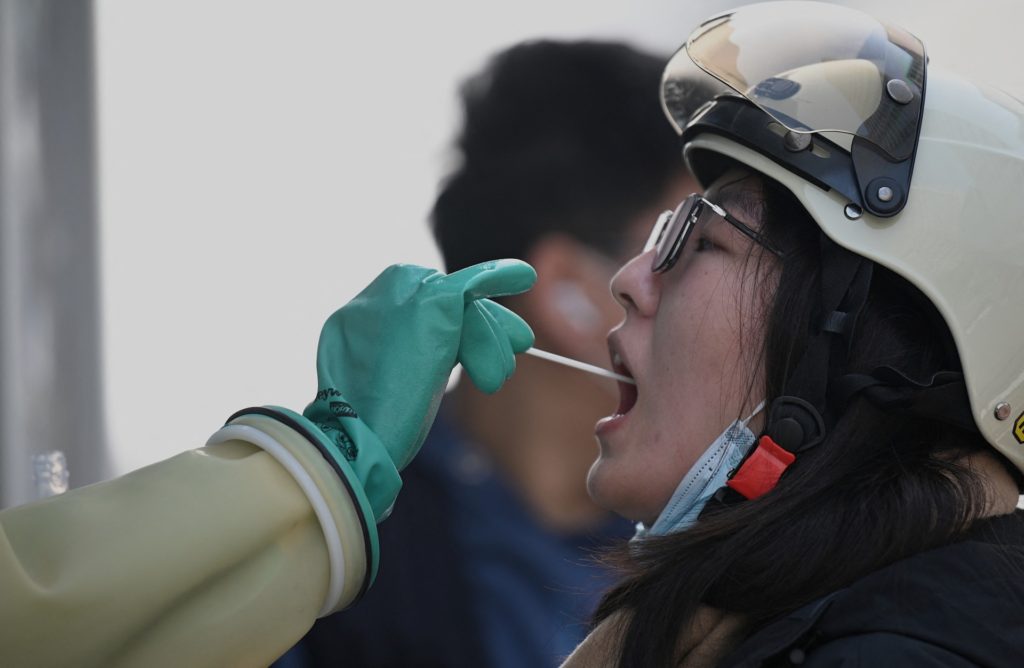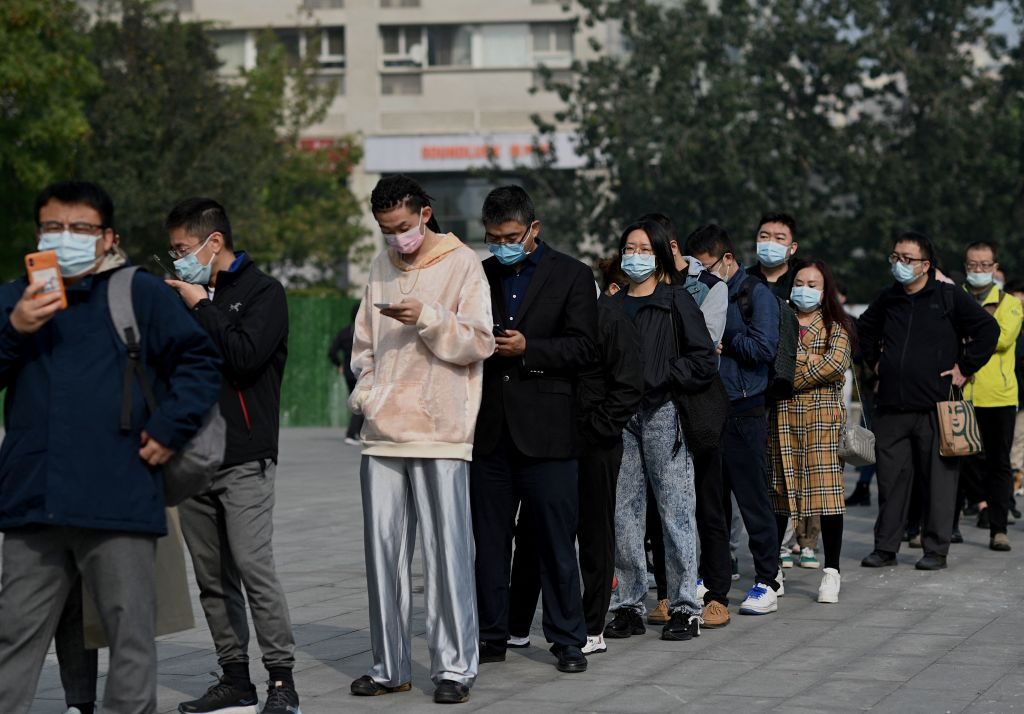The Chinese Communist Party’s National Health Commission (NHC) blamed unknown foreign sources on Sunday for a nationwide spike in coronavirus cases, despite the first confirmed patients in the outbreak being domestic Chinese tourists.
NHC officials did not identify any other country by name for the outbreaks, now affecting 11 of China’s 23 provinces, or offer any evidence that the first people to test positive for the virus on this occasion had any exposure to the outside world. Chinese state-run media had speculated for the past week, however, that the virus entered the country through ports handling foreign cargo on the surfaces of items shipped into the country, a form of transmission that mainstream scientists have largely dismissed as highly unlikely.
Communist Party officials in Inner Mongolia, a northern region, have reportedly implemented movement restrictions allegedly intended to contain the virus.
NHC officials appear to have arrived to the conclusion that the outbreaks originated abroad based on the fact that patients tested positive for the Delta variant of the virus, which originated in India. Chinese health officials had documented the presence of the Delta variant in the country since at least July, however, the state-run Global Times recalled on Sunday. China and India share a border; India first identified the variant in December 2020.
“Of the 133 infections reported over the past week, 106 cases were found to be related to tourist activities involving a total of 13 tour groups or self-driving tours,” the Global Times relayed a senior NHC official as telling reporters on Sunday. The NHC did not indicate that any of these tour groups left the country and the Times reported, “most of the infections are related to cross-regional tourism-related activities.”

A health worker takes a swab sample from a woman to test for the coronavirus at a nucleic acid collection station in Beijing on October 25, 2021. (NOEL CELIS/AFP via Getty Images)
Despite the lack of evidence, the Times stated that the NHC believed the outbreaks in at least 11 provinces were “triggered by a new imported source identified as being of the Delta variant” because the genome sequence of the virus currently infecting people in China did not resemble that of the original strain of coronavirus – which originated in central Wuhan, China – or any other Chinese variants.
A Chinese expert from Peking University claimed in the Global Times report that the foreign nature of the outbreaks had been “confirmed” despite the lack of evidence pointing to any single foreign source. The expert further argued that the return of winter would strengthen the virus’s ability to survive on surfaces. That commentary followed multiple articles published last week in the Global Times apparently blaming surface transmission by touching items imported from abroad for the continued viral spread.
A growing number of scientists believe that touching surfaces is not a primary mode of infection.
“People can be infected with SARS-CoV-2 through contact with surfaces. However, based on available epidemiological data and studies of environmental transmission factors, surface transmission is not the main route by which SARS-CoV-2 spreads, and the risk is considered to be low,” the U.S. CDC noted in April.
“Studies and investigations of outbreaks all point to the majority of transmissions occurring as a result of infected people spewing out large droplets and small particles called aerosols when they cough, talk or breathe,” Nature reported in January. “These can be directly inhaled by people close by. Surface transmission, although possible, is not thought to be a significant risk.”
Some experts have questioned the value of deep cleaning and disinfecting surfaces as evidence has grown this year that the virus rarely infections people through surface contact.
In the same article on Sunday suggesting a foreign origin for the current crisis, the Global Times admits a domestic tour group infected several of the areas currently documenting rapid spread.
“Almost all the domestically transmitted cases were part of tour groups traveling to the county-level division in the region that borders Mongolia, the latest transmission chains showed,” according to the Global Times.

People wait in a queue to be tested for the Covid-19 coronavirus at a nucleic acid collection station in Beijing on October 25, 2021. ( NOEL CELIS/AFP via Getty Images)
The current outbreak has caused flight cancelations, mobility restrictions, and mass vaccination campaigns in key economic sectors of the country, particularly Beijing. The national capital postponed its annual marathon from October 31 to a later date on Sunday; Wuhan also postponed its race. The Beijing race was expected to attract 30,000 people.
In the aftermath of the Communist Party’s declaration of victory against the virus in March 2020 – despite experiencing ongoing mass infections in almost every province – Chinese officials began encouraging mass events and widespread national travel. The Party especially endorses “red tourism,” or travel to study important communist historical sites, on major communist holidays. October 1 is the anniversary of the founding of the Communist Party, one such occasion, leading some question if government-encouraged ideological travel may have prompted the current crisis. A government-approved expert told the Global Times last week that such travel could “not be ruled out” as the reason for the resurgence of coronavirus cases in the country.
The coronavirus crisis in China is occurring as the World Health Organization (W.H.O.) documents a near-universal decline in coronavirus diagnoses around the world. Only one region – Europe – saw an increase in cases between last week and the week before.

COMMENTS
Please let us know if you're having issues with commenting.